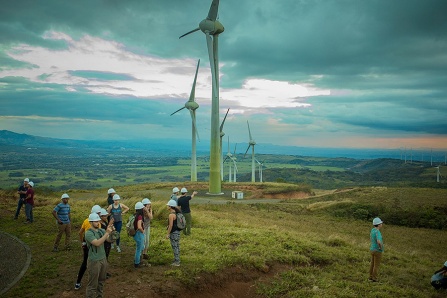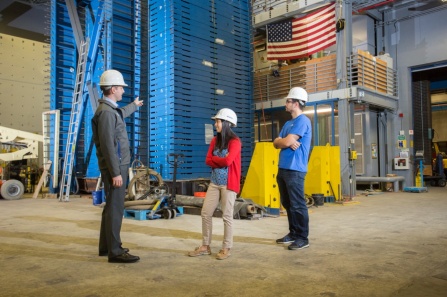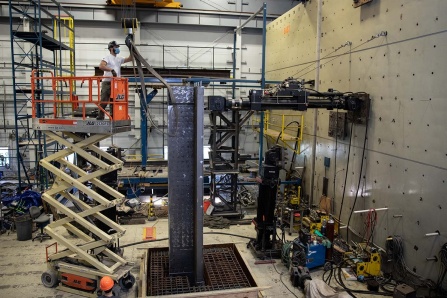Research

Faculty members and students in the Department continue to produce high-impact research to enhance the built and natural environments. Our award-winning projects improve lives and make communities safer.
Learn about our core research areas below:

Researchers associated with our environmental and water resources engineering discipline seek to better understand the physical, chemical and biological processes that influence the health of our environment and develop innovative engineering solutions for its protection.
UB CSEE engineers track COVID-19 and other viruses, make the world more sustainable through research and action at a community-level, develop innovative ways to purify water, protect the Great Lakes, and fight pollution in our air and water. Additionally, researchers within this discipline collaborate with partners across the School to focus on Engineering Sustainability.
Videos
Highlights
Affiliated Centers/Labs

Researchers in geosystems engineering address a range of topics, including computational geomechanics, deep foundations, ground improvement, seismic response of soils, liquefaction and retrofit of foundations, dams, slopes and retaining walls.
Geosystems engineering researchers work across disciplines to address issues facing many other engineers. Our geosytems engineering researchers often work closely with IBE researchers, and have contributed to projects associated with tunnels, oil rigs and other vital pieces of infrastructure.
Videos
Affiliated Centers/Labs

UB CSEE has a long history of excellence in structural engineering, mechanics and materials. In the 1980s, engineers in the Department founded the National Science Foundation-funded National Center for Earthquake Engineering Research (NCEER). In 1998, the center was renamed to the Multidisciplinary Center for Earthquake Engineering Research (MCEER). The Center has produced over 600 publications. MCEER investigators continue to develop design procedures and seismic evaluation and rehabilitation strategies for facilities and systems that can function following an earthquake or other disaster.
Our structural engineering, mechanics and materials researchers continue to enhance community resilliency to earthquake, develop design guidelines for buildings and other structures. Faculty and students are also emerging as leaders in various areas such as wind, fire and materials engineering. Research in mechanics involves the application of the fundamental principles of solid and fluid mechanics to a variety of emerging engineering problems, using state-of-the-science numerical algorithms and high-performance computing technology.
Our Structural Engineering, Mechanics and Materials group are also active in bridge engineering. Investigators have developed design guidelines to make bridges safer and more resilient. The contributions of our bridge engineers continue to repair aging infrastructure in the U.S.
In 2013, UB established the Institute of Bridge Engineering (IBE) to improve the performance of bridges through research and education. Since then, IBE researchers have generated over $3 million in funding.
Videos
Affiliated Centers/Labs

Researchers in transportation engineering focus on enhancing the efficiency, safety, sustainability and resiliency of surface transportation systems. Our faculty and students work on cutting-edge projects, enhancing transportation options for entire cities and more.
Additionally, UB CSEE engineers are leading the University's Stephen Still Institute for Sustainable Transportation and Logistics (SS ISTL), aimed at shaping the future of transportation and logistics. The SS ISTL brings together researchers from engineering, business administration, political science and other backgrounds to solve some of the most pressing issues facing transportation. The Institute's namesake, current director, founding director and several other researchers are faculty members within the Department.





